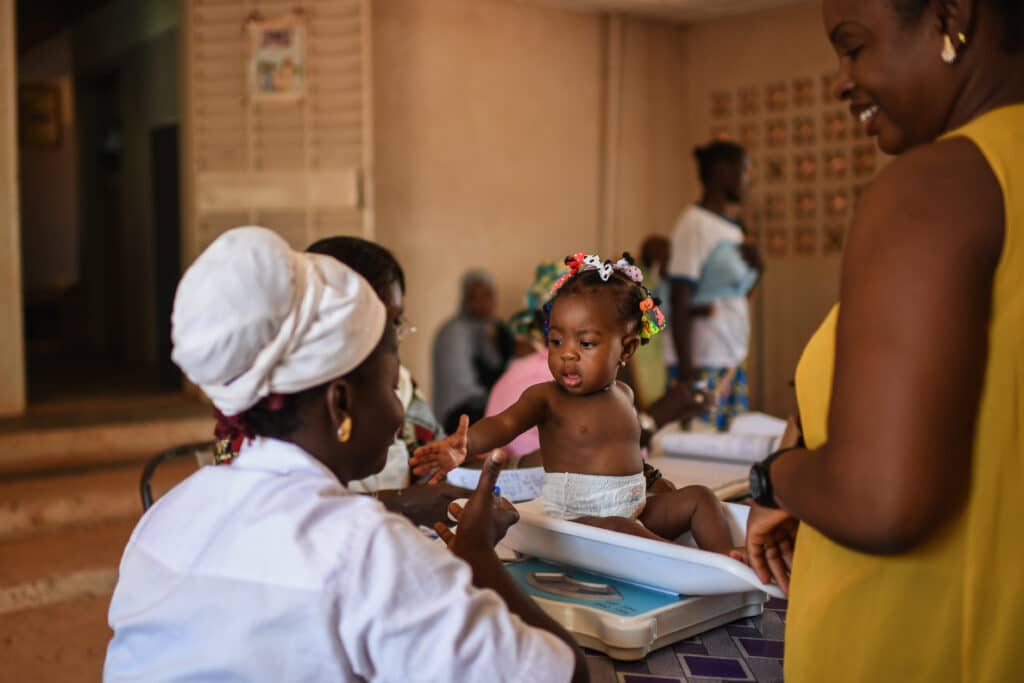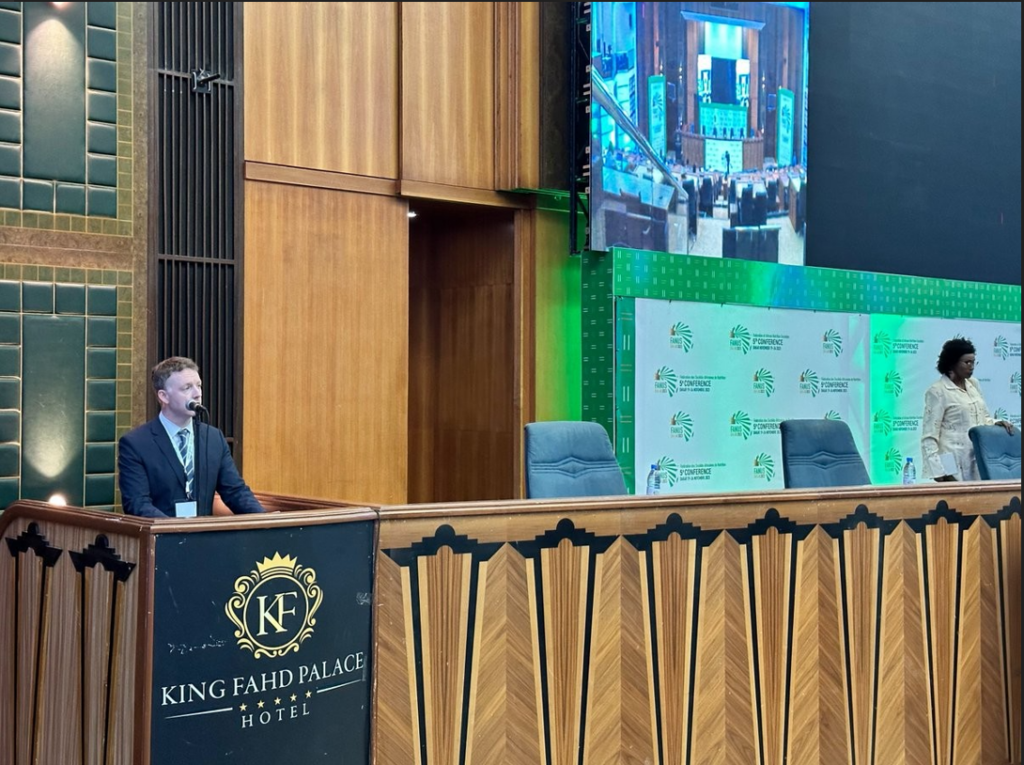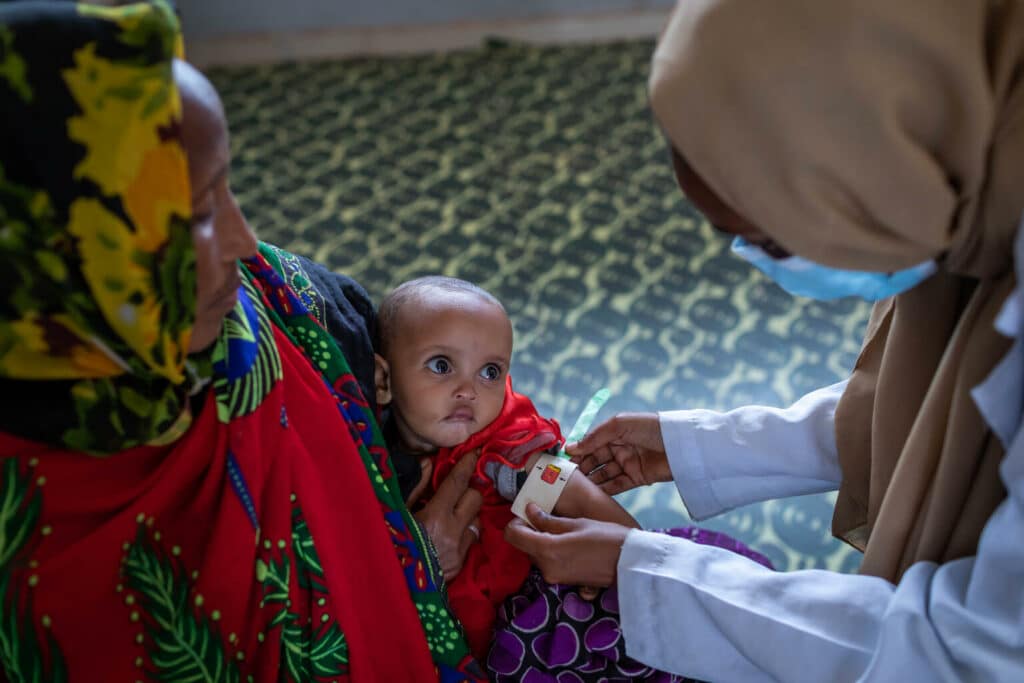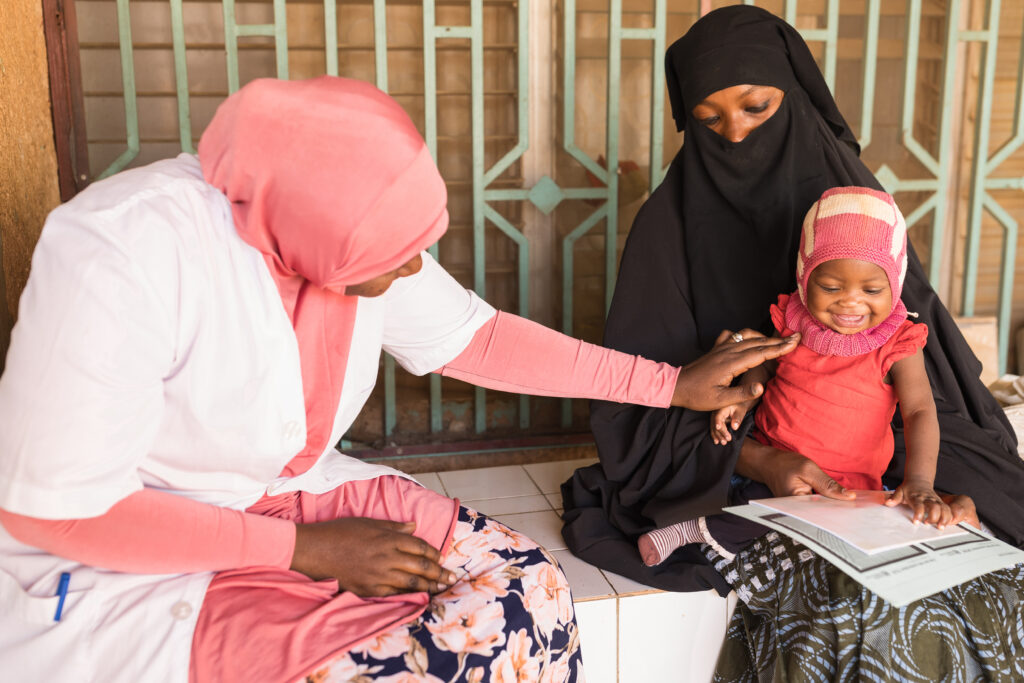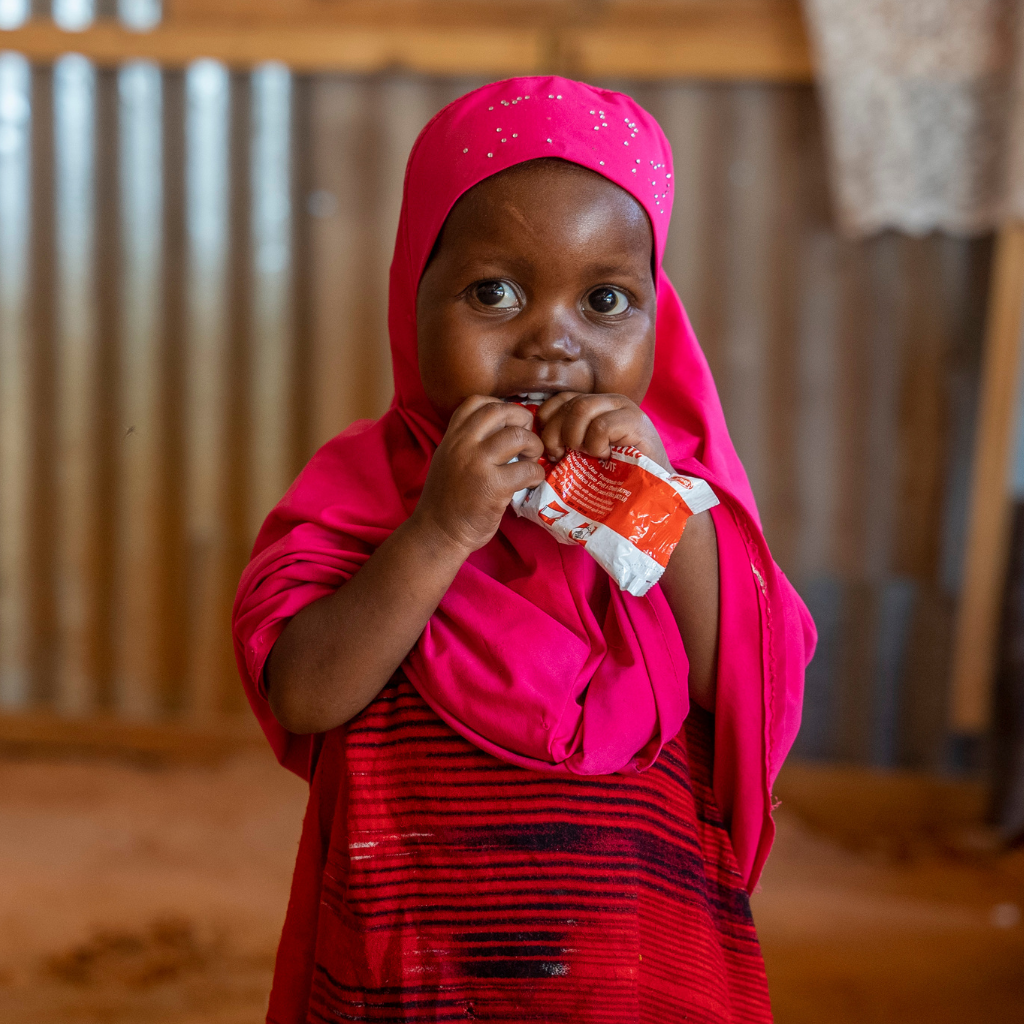On Friday, May 31, the Eleanor Crook Foundation, the Bill & Melinda Gates Foundation, the Children’s Investment Fund Foundation, and Kirk Humanitarian announced a groundbreaking investment plan for how to scale up multiple micronutrient supplementation, or MMS. For the first time, we have a roadmap that includes activities and investments that are needed to reach more pregnant women in low- and middle-income countries with a complete prenatal supplement. Scaling MMS to reach 260 million pregnant women would save more than 600,000 lives, lead to improved birth outcomes for more than 5 million babies, and prevent more than 15 million cases of maternal anemia.
Why All Women Should Have Access to High-Quality Prenatal Vitamins
WHY NOW?
A growing number of countries around the world have identified delivering MMS to pregnant women as a priority. MMS offers proven health outcomes for mothers and babies, especially compared to iron and folic acid (IFA), the current standard of care in low- and middle-income countries. When pregnant women suffer from anemia, MMS goes even further to prevent babies from being born too early, too small, and even stillborn. Getting to scale will require additional resources and close collaboration with country governments setting the agenda for introducing and implementing MMS.
The new investment roadmap, “Healthier Pregnancies and Brighter Futures for Mothers and Babies: A global investment roadmap for multiple micronutrient supplementation,” profiles five countries that are in various stages of the journey to scale up MMS with donor support.
Bangladesh, Ethiopia, and Nepal are three examples of countries leading the way to make MMS more accessible, and stories from these countries can illuminate the experience of pregnant women and health care workers in these contexts. To learn more, see the appendix of the full roadmap.
NEPAL
Sangita Mishra has been a health worker in Nepal for the past 22 years. She works at a health facility in Lumbini, a province that has the highest burden of malnutrition. In May 2024, she participated in a training for health workers on MMS. The training marked the beginning of a randomized control trial in Lumbini on MMS acceptability and adherence.
“Until now, no health worker in the country knew about MMS,” Sangita said. “After this training, I came to know about it. I am excited about it, and my colleagues are happy, too….I am confident that [MMS] will help improve the health of the mother and the child.”
The government of Nepal is currently exploring introducing MMS to pregnant and lactating women in all of its seven provinces. Nepal is uniquely positioned for success because its IFA program has achieved high coverage levels; according to DHS 2022 data, 86% of pregnant women in Nepal benefited from IFA for at least 90 days or more.
The government is steering this crucial research on MMS acceptability and adherence, the outcomes of which will help determine whether and how to deliver MMS at scale to thousands of pregnant and lactating women throughout Nepal. Helen Keller Intl is the key implementing partner of the research study; Sight and Life Foundation will partner with Helen Keller to answer key questions around the supply of MMS in Nepal. The Eleanor Crook Foundation provided the funding for this project, which is in service of Nepal’s Ministry of Health and Population’s goal of ensuring that the nutritional needs of women and children are met throughout the country.
“Until now, no health worker in the country knew about MMS. After this training, I came to know about it. I am excited about it, and my colleagues are happy, too….I am confident that [MMS] will help improve the health of the mother and the child.”
Sangita Mishra, Community health worker, nepal
BANGLADESH
At 22 years old, Jahanara is a garment factory worker and the breadwinner of her family. At four months pregnant, she went to the doctor for an ultrasound, and he prescribed MMS. She felt no side effects, so continued to take MMS throughout her pregnancy – even setting aside money from her meager earnings so she could continue to purchase it. “If it’s for the future of my child, there’s no reason I would stop taking it,” she said.
Jahanar notes that her struggles are not unique – that thousands of women like her care for their families and work tirelessly outside the home. And as she says in the video: “I am much more [than a garment factory worker]. I am a mother.”
Every year in Bangladesh, nearly one in four babies (23 percent) are born with a birth weight that is too low. Thirty-seven percent of women of reproductive age suffer from anemia. MMS is a safe and affordable intervention that can improve maternal nutrition and lower the risk for stillborn, pre-term, and low-birth weight babies.
The government of Bangladesh is in the process of implementing MMS for pregnant women across the country, and has approved local production of MMS – a huge breakthrough, because MMS is available for purchase nationwide through pharmacies. The government has also taken steps for MMS to be distributed by the country’s health system. In 2024, the National Nutrition Services, part of the Institute of Public Health Nutrition, integrated MMS into its operational plan as well as its estimated budget, with the plan to procure 30 million MMS tablets per year for distribution through the health system. That amount would cover 166,000 pregnancies each year.
One of the most exciting developments in Bangladesh is that two demonstration projects led by the Government – public sector distribution and a market-based model – have shown improved adherence for MMS compared to IFA. The government has also included MMS in several national policy documents and established a technical advisory group on MMS.
ETHIOPIA
Kokobe Ashebir is 20 years old, and started taking MMS at seven months pregnant after a visit with Workitu Abera, a health worker at Kolabe Bale Health Post in Sire, Oromia Region, Ethiopia. Her story is captured as part of UNICEF’s photojournalism on MMS in Ethiopia.
“I used to experience extreme fatigue, dizziness and heartburn,” Kokobe said. “After a week of MMS, everything stopped.” Her baby was born at a healthy weight and within the expected time of delivery. “I love [MMS],” she said, “and I continue to take it, even after my pregnancy.”
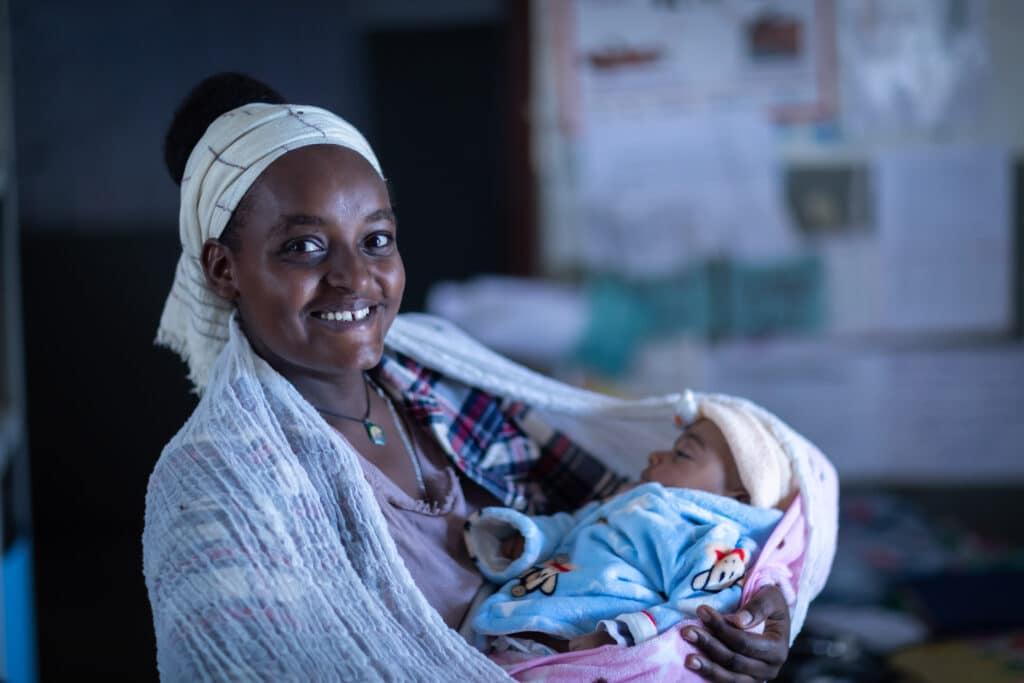
In Ethiopia, 24 percent of women of reproductive age are anemic. Twenty percent of babies are born with low birth weight. Additionally, the country’s maternal mortality rate is 267 per 100,000 live births, and the neonatal mortality rate is 27 per 1,000 live births. The Sustainable Development Goals set an aim to end preventable deaths of newborns and children under five years of age, with all countries aiming to reduce neonatal mortality and under‑five mortality by 2030.
The government of Ethiopia is currently exploring implementation of MMS, and their first step has been to gather evidence on the feasibility of scaling it up, given that rates of antenatal care and IFA coverage are less than optimal. To achieve successful implementation of MMS in Ethiopia, an overall strengthening of the health system will be essential.
The government has established an MMS task force and a technical advisory group to aid in the transition from IFA to MMS. Policy and guideline updates are underway, including recent revisions to antenatal care and Adolescent, Maternal, Infant, and Young Child Nutrition (AMIYCN) guidelines. The updated antenatal care guidelines now incorporate mention of multiple micronutrient supplements “when feasible,” while the AMIYCN guidelines underscore the importance of “multiple micronutrients” during pregnancy. The government has requested additional evidence on feasibility, cost, uptake, and coverage before changes are fully endorsed through policy.
ECF’S SUPPORT OF COUNTRY SCALE-UP OF MMS
In addition to ECF’s partnership with the government of Nepal, we are partnering with the government of Ghana and the Clinton Health Access Initiative (CHAI) to introduce MMS for potential scale-up. Additionally, ECF and Waterloo Foundation have a partnership with the government of Senegal and Nutrition International on exploratory work on opportunities and challenges related to supplementation of MMS in Senegal. ECF is continuing to investigate partnerships and opportunities to support the growing movement of countries interested in bringing MMS to scale.
